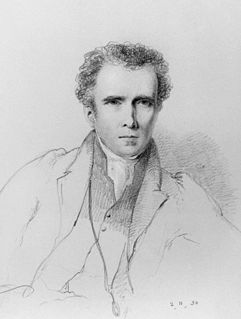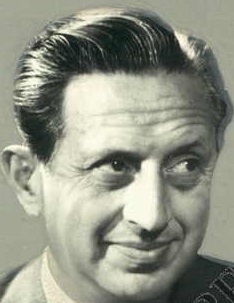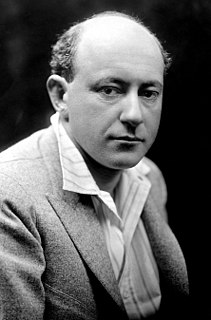A Quote by Bryan Procter
Where are Shakespeare's imagination, Bacon's learning, Galileo's dream? Where is the sweet fancy of Sidney, the airy spirit of Fletcher, and Milton's thought severe? Methinks such things should not die and dissipate, when a hair can live for centuries, and a brick of Egypt will last three thousand years. I am content to believe that the mind of man survives, somehow or other, his clay.
Related Quotes
And oft I thought (my fancy was-so strong) That I, at last, a resting-place had found: 'Here: will I dwell,' said I,' my whole life long, Roaming the illimitable waters round; Here will I live, of all but heaven disowned. And end my days upon the peaceful flood - To break my dream the vessel reached its bound; And homeless near a thousand homes I stood, And near a thousand tables pined and wanted food.
The life of Islamic philosophy did not terminate with Ibn Rushd nearly eight hundred years ago, as thought by Western scholarship for several centuries. Rather, its activities continued strongly during the later centuries, particularly in Persia and other eastern lands of Islam, and it was revived in Egypt during the last century.
Each person decides in early childhood how he will live and how he will die... His trivial behavior may be decided by reason, but his important decisions have already been made: what kind of person he will marry, how many children he will have, what kind of bed he will die in... It is incredible to think, at first, that man's fate, all his nobility and all his degradation, is decided by a child no more than six years old, and usually three... (but) it is very easy to believe by looking at what is happening in the world today, and what happened yesterday, and seeing what will happen tomorrow.
Imagination! Imagination! I put it first years ago, when I was asked what qualities I thought necessary for success upon the stage. And I am still of the same opinion. Imagination, industry [hard work], and intelligence-the three I's-are all indispensable to the actor, but of these three the greatest is, without any doubt, imagination.
No man should think that peace comes easily. Peace does not come by merely wanting it, or shouting for it, or marching down Main Street for it. Peace is built brick by brick, mortared by the stubborn effort and the total energy and imagination of able and dedicated men. And it is built in the living faith that, in the end, man can and will master his own destiny.
To me this world is all one continued vision of fancy or imagination, and I feel flattered when I am told so. What is it sets Homer, Virgil and Milton in so high a rank of art? Why is the Bible more entertaining and instructive than any other book? Is it not because they are addressed to the imagination, which is spiritual sensation, and but immediately to the understanding or reason?
Who is left in the ghetto is the one man in a thousand in any age, in any culture, who through some mysterious workings of force within his soul will stand in defiance against any master. He is that one human in a thousand whose indomitable spirit will not bow. He is the one man in a thousand whose indomitable spirit cannot bow. He is the one man in a thousand who will not walk quietly to Umschlagplatz. Watch out for him, Alfred Funk, we have pushed him to the wall.
I am content to live and die as the mere repeater of Scriptural teaching - as a person who has thought out nothing and invented nothing - but who concluded that he was to take the message from the lips of God to the best of his ability and simply to be a mouth for God to the people. - mourning much that anything of his own should come between - but never thinking that he was somehow to refine the message or to adapt it to the brilliance of this wonderful century and then to hand it out as being so much his own that he might take some share of the glory of it.
All the unimaginative assholes in the world who imagine that Shakespeare couldn't have written Shakespeare because it was impossible from what we know about Shakespeare of Stratford that such a man would have had the experience to imagine such things - well, this denies the very thing that separates Shakespeare from almost every other writer in the world: an imagination that is untouchable and nonstop.
I came to believe it not true that "the coward dies a thousand deaths, the brave man only one." I think it is the other way around: It is the brave who die a thousand deaths. For it is imagination, and not just conscience, which doth make cowards of us all. Those who do not know fear are not truly brave.
Today it is not alive. What, then, is this experience of humanism? With the above survey I have tried to show you that the experience of humanism is that — as Terence expressed it — “Nothing human is alien to me”; that nothing which exists in any human being does not exist in myself. I am the criminal and I am the saint. I am the child and I am the adult. I am the man who lived a hundred thousand years ago and I am the man who, provided we don't destroy the human race, will live hundred thousand years from now.
Man has made 32 million laws since THE COMMANDMENTS were handed down to Moses on Mount Sinai more than three thousand years ago, but he has never improved on God's law. THE TEN COMMANDMENTS are the principles by which man may live with God and man may live with man. They are the expressions of the mind of God for His creatures. They are the charter and guide of human liberty, for there can be no liberty without the law.





































